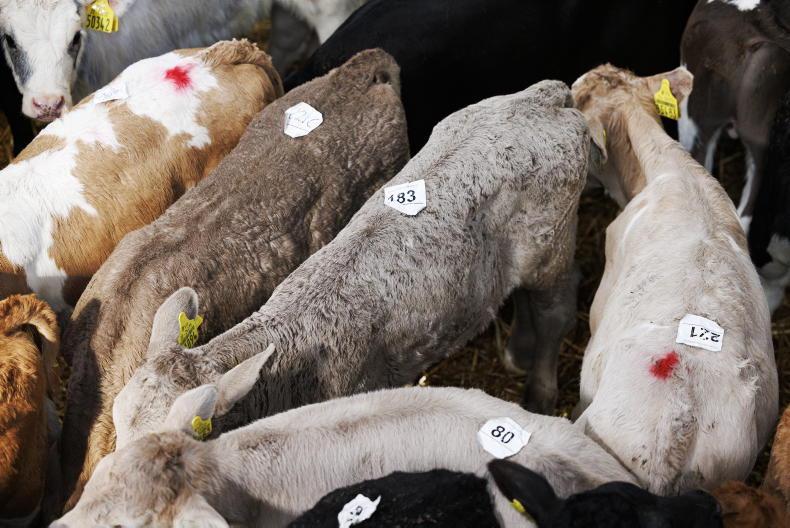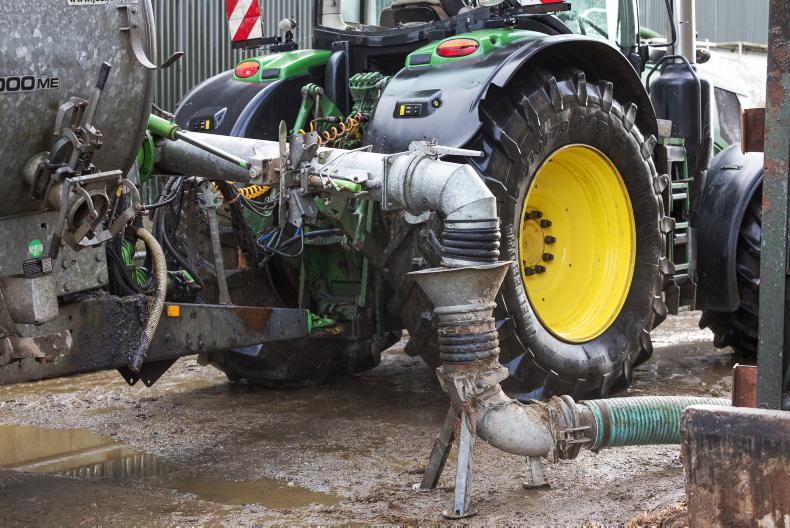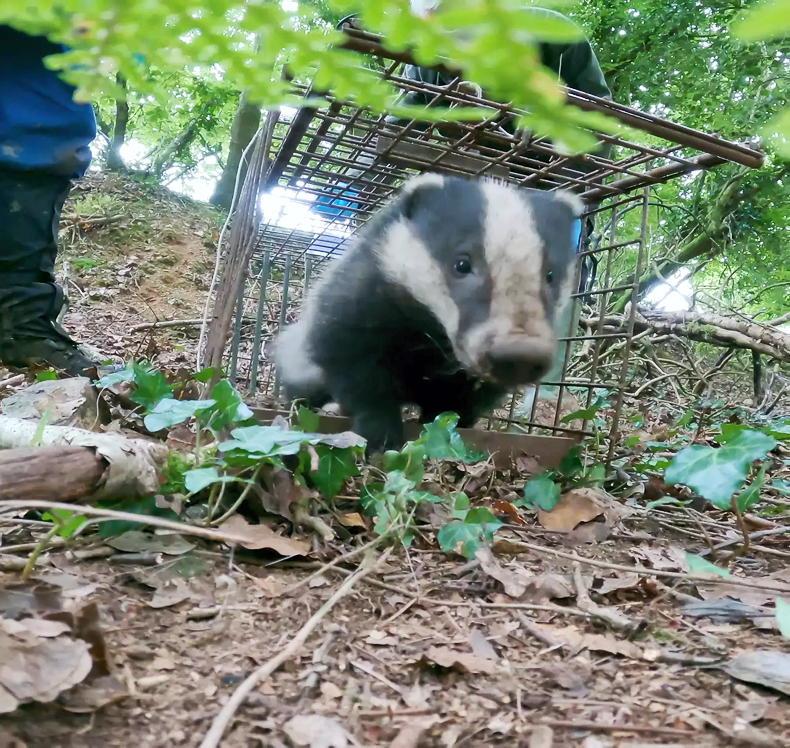Categorisation of herds on TB risk and risk-based trading have rung loud warning bells with the farm organisations, who are worried about cattle being devalued and family farm incomes being hit
The measures are unnecessary, according to IFA animal health chair Pat Farrell.
“Only a very small percentage, 7.4%, of new outbreaks are caused by buying in cattle,” he said. “The other 92% arise from latent infection remaining in a herd from a previous breakdown, from wildlife or infection in the environment.”
Devaluing cattle would merely benefit cattle dealers and opportunistic buyers, he warned.
“They would buy these cattle at low prices and sell them on, contributing nothing to eradication.”
The Department is failing to identify and remove all sources of TB from the herd during a disease episode, Farrell said.
He called for earlier depopulation – if agreeable with the herdowner – to return a farm to normal more quickly. He also said consideration should be given to removing more older and higher-risk animals with compensation.
At the forum he proposed new measures:
Wildlife densities reduced in advance of major infrastructural works and deforestation.A national deer management strategy to reduce deer density to sustainable levels, including surrounding TB outbreaks.Badger density reduction must continue to be the primary focus of the wildlife unit, with no further expansion of vaccination until concerns are addressed.More biosecurity advice for farmers to reduce contact between cattle and infected wildlife, with financial supports for farm structural changes.Herd categorisation and risk-based trading would put farms out of business, the ICSA’s Hugh Farrell warned.
“This information, in a public forum, would wreak havoc. The Department can instead use this information in-house to manage outbreaks.”
He warned that while the TB Forum has its merits, “Department officials are very focused on pushing through their own demands while resisting demands from farming organisations. Farmers’ concerns over policy measures and compensation must be addressed for things to progress.
We need to reduce the potential for these calves to further spread the disease as they are dispersed around the country
“We need to see more commitment from officials on deer. The Department mantra that there is no evidence of a link between the expanding deer population and the spread of TB rings hollow when they haven’t done the necessary studies. We want a comprehensive and transparent research programme into the link between TB in deer and in cattle.”
The ICSA questioned the effectiveness of badger vaccination. “There must be more testing of badgers, including prior to vaccination and testing of all culled badgers,” Farrell said.
He said calves under four months should be considered units with their dams if their dams have tested positive and the calves should be removed with compensation. He said closed calf-to-beef units should be established to accommodate calves from reactor herds.
“We need to reduce the potential for these calves to further spread the disease as they are dispersed around the country.”
Compensation and costings in the programme must reflect the true cost of the programme to farmers, he said.
The Department of Agriculture seems to feel that, in some way, it is over-compensating farmers struck by TB and that “more whip needed to be applied to farmers”, said Lorcan McCabe, ICMSA deputy president, and he is concerned about that.
“A number of the 10 or so proposals tabled by the Department are not problematic and ICMSA would have no issue with them,” he said. “But I am particularly concerned by the balance that needs to be struck between fair disclosure of herd status and the reality that you could see individuals double-penalised.
We think the Department’s proposals put a disproportionate weight on animal movements when the data tells us that 7.4% of TB outbreaks are due to animal movements
"They had to get past an incidence of infection and then were hampered in trading of their animals, despite testing clear.
“We think the Department’s proposals put a disproportionate weight on animal movements when the data tells us that 7.4% of TB outbreaks are due to animal movements and they are, typically, only very short episodes,” he said. “This question of disclosing the health history of a herd needs more attention and thought than the Department seemed inclined to give it.
“I contrast their determination in this area with their somewhat weaker commitment to looking at the wildlife aspect, specifically badgers and deer.”
“Clearly, a TB outbreak needs to be managed in a way that brings it to a conclusion as quickly as possible. But ICMSA is very clear that the TB arrangements must adequately and fairly address farmer concerns in relation to farm management and the financial implications of a TB breakdown,” he concluded.
Categorisation of herds on TB risk and risk-based trading have rung loud warning bells with the farm organisations, who are worried about cattle being devalued and family farm incomes being hit
The measures are unnecessary, according to IFA animal health chair Pat Farrell.
“Only a very small percentage, 7.4%, of new outbreaks are caused by buying in cattle,” he said. “The other 92% arise from latent infection remaining in a herd from a previous breakdown, from wildlife or infection in the environment.”
Devaluing cattle would merely benefit cattle dealers and opportunistic buyers, he warned.
“They would buy these cattle at low prices and sell them on, contributing nothing to eradication.”
The Department is failing to identify and remove all sources of TB from the herd during a disease episode, Farrell said.
He called for earlier depopulation – if agreeable with the herdowner – to return a farm to normal more quickly. He also said consideration should be given to removing more older and higher-risk animals with compensation.
At the forum he proposed new measures:
Wildlife densities reduced in advance of major infrastructural works and deforestation.A national deer management strategy to reduce deer density to sustainable levels, including surrounding TB outbreaks.Badger density reduction must continue to be the primary focus of the wildlife unit, with no further expansion of vaccination until concerns are addressed.More biosecurity advice for farmers to reduce contact between cattle and infected wildlife, with financial supports for farm structural changes.Herd categorisation and risk-based trading would put farms out of business, the ICSA’s Hugh Farrell warned.
“This information, in a public forum, would wreak havoc. The Department can instead use this information in-house to manage outbreaks.”
He warned that while the TB Forum has its merits, “Department officials are very focused on pushing through their own demands while resisting demands from farming organisations. Farmers’ concerns over policy measures and compensation must be addressed for things to progress.
We need to reduce the potential for these calves to further spread the disease as they are dispersed around the country
“We need to see more commitment from officials on deer. The Department mantra that there is no evidence of a link between the expanding deer population and the spread of TB rings hollow when they haven’t done the necessary studies. We want a comprehensive and transparent research programme into the link between TB in deer and in cattle.”
The ICSA questioned the effectiveness of badger vaccination. “There must be more testing of badgers, including prior to vaccination and testing of all culled badgers,” Farrell said.
He said calves under four months should be considered units with their dams if their dams have tested positive and the calves should be removed with compensation. He said closed calf-to-beef units should be established to accommodate calves from reactor herds.
“We need to reduce the potential for these calves to further spread the disease as they are dispersed around the country.”
Compensation and costings in the programme must reflect the true cost of the programme to farmers, he said.
The Department of Agriculture seems to feel that, in some way, it is over-compensating farmers struck by TB and that “more whip needed to be applied to farmers”, said Lorcan McCabe, ICMSA deputy president, and he is concerned about that.
“A number of the 10 or so proposals tabled by the Department are not problematic and ICMSA would have no issue with them,” he said. “But I am particularly concerned by the balance that needs to be struck between fair disclosure of herd status and the reality that you could see individuals double-penalised.
We think the Department’s proposals put a disproportionate weight on animal movements when the data tells us that 7.4% of TB outbreaks are due to animal movements
"They had to get past an incidence of infection and then were hampered in trading of their animals, despite testing clear.
“We think the Department’s proposals put a disproportionate weight on animal movements when the data tells us that 7.4% of TB outbreaks are due to animal movements and they are, typically, only very short episodes,” he said. “This question of disclosing the health history of a herd needs more attention and thought than the Department seemed inclined to give it.
“I contrast their determination in this area with their somewhat weaker commitment to looking at the wildlife aspect, specifically badgers and deer.”
“Clearly, a TB outbreak needs to be managed in a way that brings it to a conclusion as quickly as possible. But ICMSA is very clear that the TB arrangements must adequately and fairly address farmer concerns in relation to farm management and the financial implications of a TB breakdown,” he concluded.









SHARING OPTIONS